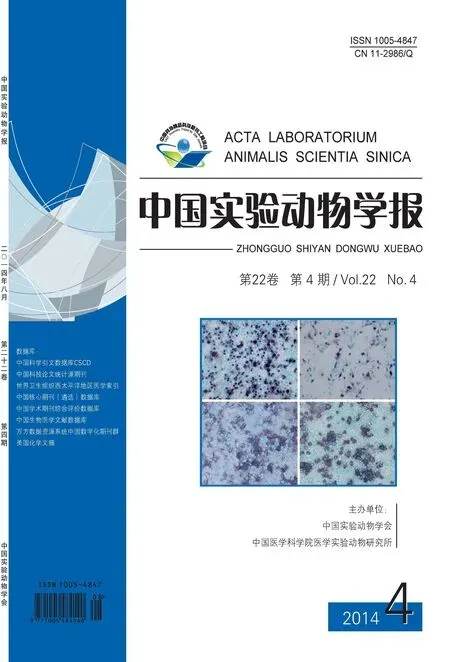Topics of interest—‘Animal models for scientific research’
As scientific research in the biomedical field rapidly advances across the globe,the ethical and social responsibilities of the researcher for the choice of animal model(s)used are ever more apparent.The researcher is left to consider the reliability of each model for the purpose of their investigation and its reproducibility for data accumulation,while also evaluating important factors such as animal welfare,safety,cost and time consummation.In this article,I bring your attention to an excellent review written by Mcgonigle(2014),which outlines the limitations of current animal models used in the research of central nervous system (CNS)disorders.
Although the choice of an appropriate model can often be overlooked out of habit,it is vital that the researcher takes the time to choose the most suitable method for their investigation,in order to accumulate the most useful data.From an ethical standpoint,the use of animals in research should always follow strict regulations,as is upheld in countries,such as the United Kingdom(‘Three R’s principle;reduction,replacement,refinement’),to avoid unnecessary use.In designing experiments,careful consideration into the most appropriate way to produce informative data can be challenging.For example,uncovering the pathogenesis of a disease state may require different methods of investigation/ animal models,than that for determining the efficacy of a novel drug.As is highlighted by Mcgonigle (2014),animal models have different aspects of validity,which include:face validity -where symptom manifestations are seen,construct validity-where underlying biological characteristics are found,and predictive validity-where response to therapeutic agents are presented.The use of such criteria in selecting a model,in relation to the aims of the investigation,can provide for the basis of an excellent experimental design.
The variety of models available in for example,the field of CNS disorders research,which can be produced by drug administration (pharmacological),surgical (lesion)or genetic manipulation (transgenic),can help broaden the experimenters range of tools for a complete investigation.As each model,in any field of research,has its advantages and disadvantages,it is of the researcher’s interest to utilise what is the appropriate tool for the overall study.Often is the case where more than one model is required,in order to produce relevant and publishable data.This brings us to the final important point of continually striving to improve the standard of scientific research.Such can be achieved from refining the current models available and developing new accurate models,which is worthy of large investment to help pave the way for exciting advancements in the field of research.
Mcgonigle P.Animal models of CNS disorders.Biochem.Pharmacol.2014.87:140 -149.
(感谢两刊编委李秦博士为此专栏付出的努力!)

